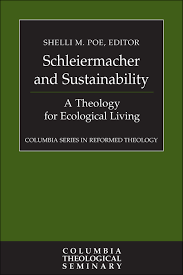African American Theological Ethics - A Review
The Library of Theological Ethics series from Westminster John Knox Press includes a number of volumes, both reprints and anthologies, that are valuable resources for an ethicist’s library. One need not agree with the contents of the volume to recognize the quality of the collection.
A recent addition to the series, African American Theological Ethics, is no exception to the string of helpful volumes.
This anthology, compiled by Peter Paris with Julius Crump, offers access to a number of voices ranging from well-known figures like Frederick Douglass, Barack Obama, and Martin Luther King, Jr., to lesser known authors like Martin Delaney and Peter Williams. The voices are varied in method and chronology, though all of them are taking up the basic question of race from a distinctly African American perspective.
The contents of the volume are organized in six parts of unequal size. Part One includes on essay opposing the doctrine of white supremacy; Part Two consists of nine essay opposing slavery. In Part Three, the editors include nine essays opposing racial segregation. And, in the fourth part, the reader will find six essays opposing racial discrimination. Part Five hold four essays on African American religious creativity. The sixth part offers eight selections that help interpret African American themes and perspectives.
With thirty-seven distinct selections, a point by point discussion of each chapter would prove onerous, but there are multiple valuable contributions that deserve highlighting. First, the book opens with late 19th century author Martin R. Delaney arguing for the genetic unity of the human race. The essay, “The Origin of Races and Color,” deals with the idea that the mark of Ham is the ultimate sign of God’s judgment and sufficient justification for the permanent subordination of dark-skinned humans. Delaney’s plea is for the unity of the human race, who, according to Scripture, share a common ancestor. It is just as interesting which of the now out of fashion racial myths Delaney accepts as his arguments against white supremacy.
Stretching the boundaries of being theological ethics, perhaps, is Barack Obama’s victory speech from his initial election as President of the United States of America. There are some ethical implications in this speech, the occasional reference to theological concepts, but the essay is more rhetoric than significant thought. The editor’s choice of this essay seems to be to highlight the contrast between Obama’s speech and the dream outlined by Martin Luther King, Jr., which famous speech they also included in the chapter that follows.
Other significant contributions of rhetoric surrounding African American thought have been included, such as James Cone’s essay, “Black Theology and Black Power,” Booker T. Washington’s, “Atlanta Exposition Address, Cornel West’s essay, “Nihilism in Black America.” The reader will find numerous contributions not listed here, but worthy of attention.
The value of this volume is first as a reference volume. It offers easy access to a curated set of sources that will help illuminate the outlines of African American thought through the past two centuries, or so. African American Theological Ethics would also make a helpful supplemental source on an ethics elective on race in the United States, or a similar course.
The weakness of this volume is that, by virtue of its limited scope and particular foci, it enhances the myth that racial minorities think primarily about race. While there is little doubt that the voices of minorities tend to be raised more often than majority voices on the topic of race, many of these thinkers had a great deal more say about theological ethics than this volume offers. Notably absent from the volume are considerations of ethical methodology and ethical reasoning not framed primarily through the lens of race. This is a lacuna that the editor, Paris, takes up in the conclusion of his closing essay in the volume; he attributes it to lack of content, but his critique of African Americans for retaining biblical Christian perspectives on topics like sexual ethics indicate a bias in rejecting non-revisionist contributions as inauthentically black more than an actual absence of material.
This is a helpful resource that should be in the library of ethicists, theologians thinking about applied anthropology, political theologians, and institutional collections. It will provide a place to begin further research, even as it offers an overview of an important topic.
Note: I received a gratis copy of this volume with no expectation of a positive review.




























Reading your Bible is a battle. There’s a reason why Paul lists Scripture as the sword of the Spirit in his discussion of the armor of God (Eph. 6:17). More even than that, Scripture reveals God’s character and is, thus, central to worshiping well (Psalm 119). That’s why reading the Bible is a battle.